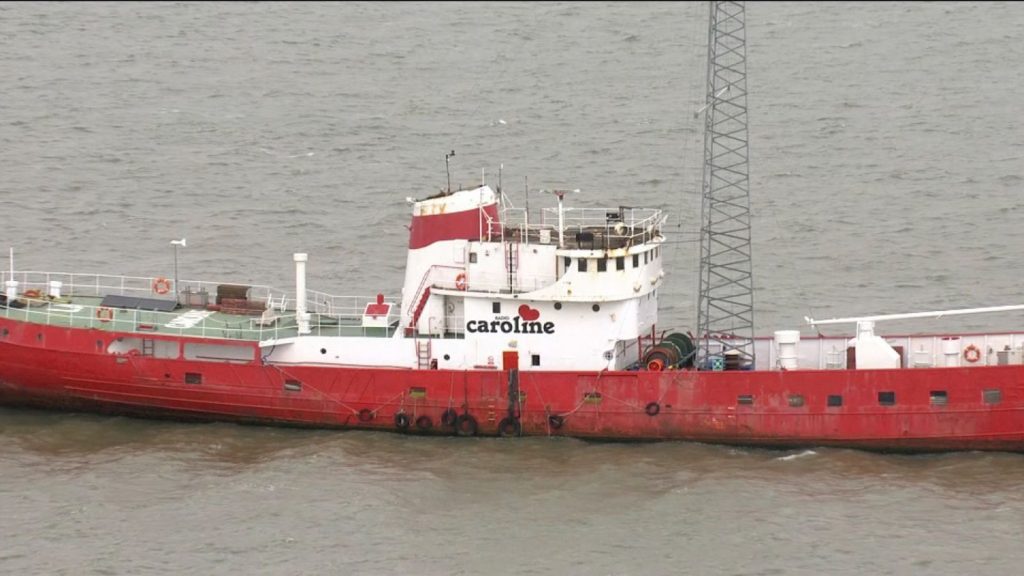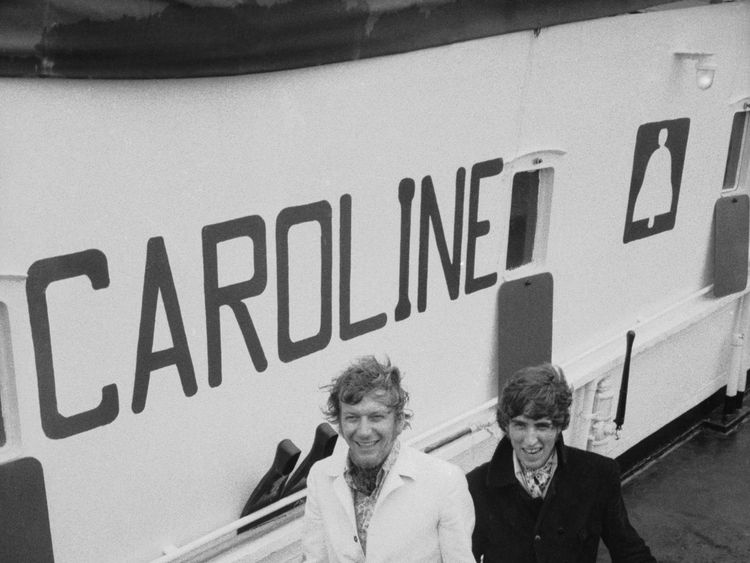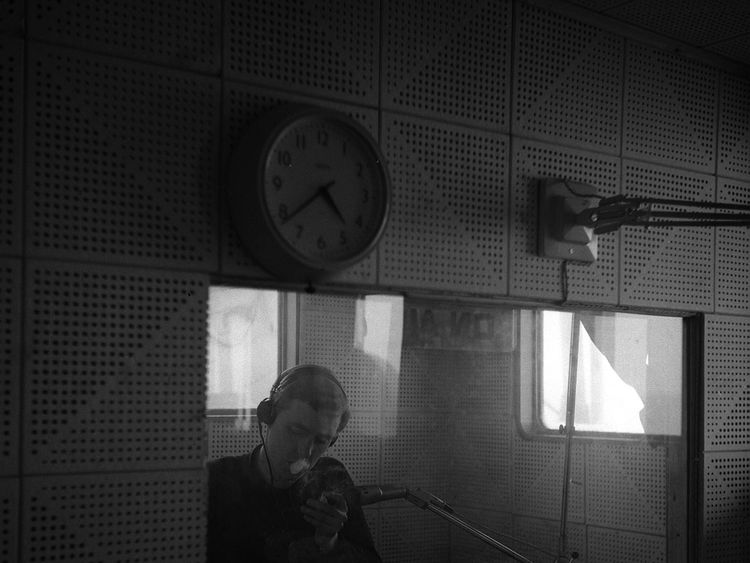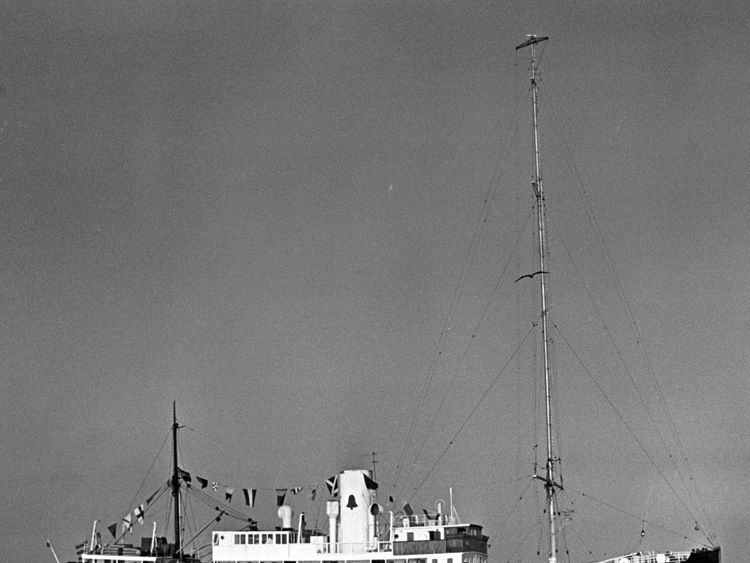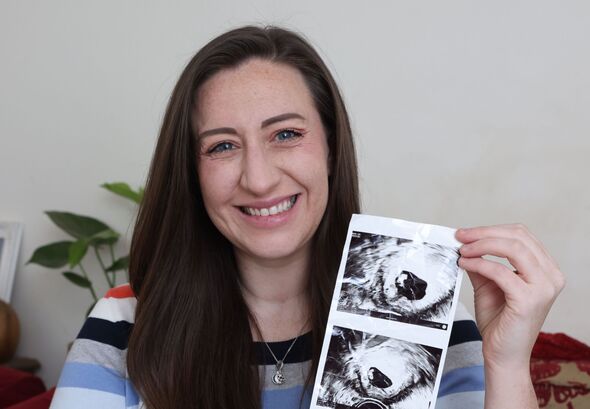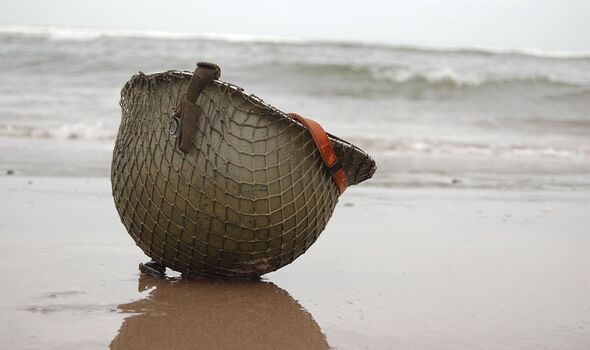Radio rebels go straight: Pirates get a licence
On this day in 1967, the Marine Broadcasting Offences Act was introduced to stop pirate radio and Radio Caroline was its main target.
But now, 50 years later, radio’s rebels are officially going straight – Ofcom has granted the station its first full-time AM broadcast licence.
Back in the 1960s, Radio Caroline was among those stations being illegally broadcast on medium-wave frequencies from ships off the UK coast.
To get Caroline on air a 150ft transmitter was mounted to a Dutch trawler with one goal in mind – to play pop music all day.
The station’s current programme manager DJ Kevin Turner said that, at the time, the BBC was playing “very little” pop music.
He told Sky News: “It was Caroline and the other pirate radio stations that came along that really broke the mould and got people listening to The Rolling Stones, The Who, and Caroline especially pioneered Tamla Motown which had never really been heard in the UK.”
Radio Caroline continued to broadcast on and off until the early 90s before returning five years ago as an online station.
Turner says that, with their licence, the station will be on 648AM – “back on medium wave where we were in the 60s 70s and 80s, with the supreme irony that that’s on the old world service frequency”.
Peter Moore, Radio Caroline’s station manager, told Sky News that running a radio station from a ship remains a “hazardous pastime”.
“If you think about trawling, it was the most dangerous profession in Britain, even more dangerous than coal mining.
“Here we are on a tiny ship, vast amounts of electricity flying around everywhere, coupled with saltwater, the dangers of falling and the greatest danger transferring from one ship to another when supply boats come out.”
The current ship is about the fifth trawler that has housed Radio Caroline.
Turner admitted: “We’ve had our ups and downs, ships being towed away, anchors breaking, masts falling down but there’s something about the Caroline family and this feeling you get when you set foot on it.
“The feeling that ‘this is my home and I’m going to do whatever I can to stop you from taking it away from me, we’re going to keep this thing on air even when the generator is running on fumes, when we haven’t eaten anything but sausages for the last two weeks, this station will carry on’ and I think it’s that sheer dogged determination that’s the reason we’re here today.”
BBC Radio One was eventually introduced as an official alternative to rival the pirates. But the role played by stations like Radio Caroline in shaping the sound of modern broadcasting should not be underestimated.
Pirate radio remains an important place for emerging artists: London and Birmingham’s illegal stations were where many of today’s biggest grime stars first built up a following.
Nowadays there’s no real need to break the law to broadcast – starting a station on the internet is legal and much cheaper. But, for stations like Wax FM, playing out on an FM signal is a point of pride, as “J” from the station explains.
“It’s in your blood, once you do it it’s just there.
“You just enjoy having your two-hour show and playing to London.”
Ofcom said pirate radio stations risk interfering with the communications of emergency services and disrupt legal broadcasters. J insists the majority of pirates are experienced with the technology and aren’t doing any harm.
However the “cat and mouse game” they play with the authorities to keep their transmitters secret can be dangerous.
J said: “A friend has been arrested, he hurt his hand and got an electric shock doing it.
“It was pretty bad but he’s fine now.”
For J and his fellow DJs, it’s all about providing the soundtrack to their local community.
“You just get a sense of people enjoying what you do.”
You may be interested

AI technology powers 'game-changing' breakthrough in IVF treatment – EXCLUSIVE
admin - Jan 11, 2025[ad_1] EXCLUSIVE: In a groundbreaking leap, AI is transforming the journey to parenthood, offering new hope to those who have…

The incredible country on track to become the 'Singapore of Africa' with huge investments
admin - Jan 11, 2025[ad_1] An African country is well on its way to becoming an investment hub for multinational corporations and investors. [ad_2]…

Katie Piper reveals artificial eye decision – 16 years after acid attack
admin - Jan 11, 2025[ad_1] TV presenter Katie Piper has revealed her decision to get an artificial eye, 16 years after an acid attack…
Leave a Comment
You must be logged in to post a comment.






